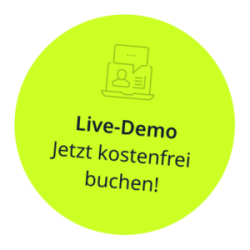Conference interpreting with Qonda.
Conference interpreting is one of the more complex and demanding types of interpreting. It requires deep understanding and expertise in various areas to meet the expectations for a successful conference. Interpreters must interact at the highest level and offer participants a professional experience. The task of conference interpreting is to mediate between several languages at international meetings. A conference interpreter must be able to interpret when members from different countries or cultures with different native languages are present. This can take the form of individual interpreting or booth interpreting.
Overcoming language barriers thanks to conference interpreting.
With Qonda, the browser-based platform for remote interpreting, there is now a tool that simplifies the organization of multilingual conferences or online meetings – both for companies and for conference interpreters. Companies can use online conference interpreters – in any language and language combination. Instead of having to be on site or in a booth as before, Qonda conference interpreting allows translators to dial in from anywhere and provide simultaneous interpreting. Relay interpreting is now also possible completely virtually with our platform.

Online conference interpreting
Conference interpreting with an unlimited number of languages per meeting – choose from up to 196 different languages
Spoken interpreting in real time for your online and face-to-face meetings
Conference interpreting with Qonda: support for every type of online meeting, hybrid event and livestream
Online conference interpreting is 100% GDPR-compliant thanks to 256-bit encryption and the server location in Frankfurt
The setup is totally simple and takes a maximum of 2 minutes
Perfect support for your conference interpreters with Qonda.
How does conference interpreting work?
Conference interpreting is an important part of international business as it facilitates communication and understanding between people from different nations and international interpreting significantly increases understanding. Trade is 72% higher when people understand each other correctly and therefore speak the same language. Conference interpreting requires skills in the areas of language, speech and cultural competence as well as a deep understanding of the differences between national languages and dialects. For conference interpreting, the interpreter must have a good understanding of the target language and be culturally sensitive.
But what does this demanding work look like in practice? Well-trained conference interpreters are used internationally at conferences or events to overcome language barriers. The conference interpreters work in booths and simultaneously translate the speaker’s speech into another language in real time, which is known as simultaneous interpreting. Or the interpreting takes place with a time delay, so-called consecutive interpreting. The process of conference interpreting requires a high degree of concentration, memory and fluency in both methods. The interpreter listens to the speaker’s speech via headphones and translates it into another language, while the conference participants listen to the translation on their own headphones. To ensure the accuracy and quality of the translation, the interpreters usually work in pairs and take turns every 20 to 30 minutes to maintain concentration.
Conference interpreters must have extensive specialist knowledge in various fields, as they are often confronted with technical, scientific or political topics. They must be able to research information quickly and deliver their translation in a clear and concise style.
In addition, there are some aspects of conference interpreting that are not directly related to translation or interpretation. To this end, interpreters help participants with administrative matters such as flight bookings or accommodation requests; the management of discussion meetings; and the preparation of information material for participants in meeting rooms, etc. Overall, it is therefore necessary for interpreters to have specially trained expertise in various techniques in order to deliver effective results.
The special thing about Qonda conference interpreting is that our conference interpreters are also used for conference interpreting at online conferences, hybrid events or online company meetings. The cabin is replaced by the monitor workstation. Various languages can be switched on from different countries. This works so well that more and more international online conferences and company meetings are being supported by Qonda.
Advantages: Conference interpreting with Qonda:
- Language barriers are overcome and communication is simplified for all participants.
- The listener receives the translation in real time.
- Every participant can take part in the conference in their native language through conference interpreting and does not have to resort to the “foreign language” of German or English.
- Equal participation of all in the conference without linguistic discrimination.
- Time-saving advantage: Using a professional conference interpreter significantly shortens the duration of a meeting, as all participants have the same information and understand it immediately. It also allows a conference interpreter to define and explain unusual words or terminology, meaning no time is wasted looking things up.
- In addition, conference interpreters facilitate access to new knowledge for all participants due to their ability to translate directly.
- Acceleration of the consensus-building process among the conference participants.
Make your personal appointment now.
Seize your chance now to get a live demonstration of the genius of the Qonda RSI platform from one of our Qonda experts! You are just one step away. Book an appointment now.

Arrange your personal video call now. Simply book your desired appointment directly into the diary of our experts!
Turning conference interpreting into a profession:
Conference interpreters have usually studied conference interpreting at a college or university and graduated with at least a Bachelor’s degree. The Conference Interpreting course is designed to be international from the outset. International communication or student stays abroad also play an important role. Interpreting and translating in real time is of course very important here. At the colleges and universities in Leipzig and Cologne, for example, there are various Bachelor’s and Master’s degree courses. In addition to studying the languages, this also includes learning certain conversation rules and protocols. The specially trained conference interpreters are deployed in particular in situations with demanding professional and technical interpreting requirements. This includes technical and scientific conferences, international events in the fields of business and politics, court hearings and radio broadcasts.
Conference interpreting in a specific field therefore means having a basic knowledge of the relevant specialist areas so that technical instructions can be understood and complex terminology can be navigated. When several languages are spoken at conferences, interpreters sometimes have to translate more than one language at a time. In such cases, it is often necessary for the interpreter to follow alongside the speaker (i.e. simultaneously), speaking words based on the same topic freehand; or by having some time before each translation (consecutively).

